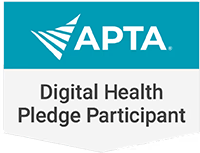Artificial Intelligence (AI) has permeated healthcare as much as it has every industry, elevating traditional treatment protocols in ways never imagined. For Genie Health, innovators in the telehealth and remote patient monitoring space, improvements in AI-based programs and motion capture technology have created progressive inroads not only into monitoring a patient’s surgical rehabilitation but also, in distinguishing MSK problems before they arise.
AI and Machine Learning: Clinical Cohorts
Artificial Intelligence is an umbrella term encompassing any number of advanced computer systems that manage tasks traditionally handled by in-person staff. However, AI works in ways humanly impossible, such as the rendering of complex clinical decisions or assimilating mass amounts of data on-the-fly.
As advanced as the current systems are, the more they are taught, the better they perform – a process called as machine learning. As patients onboard into a provider’s platform and put the technology through its paces, the smarter the tech becomes at recognizing and reporting trends.
Genie Health, led by a team of surgeons and rehab professionals, realized early on the benefits of AI-assisted MSK treatments. Adopting sensor-based technology in the early days of PT Genie – the company’s orthopedic rehabilitation division – provided an encouraging look into the ways that technology could enhance the remote patient. As technology caught up, virtual 2D body mapping became a reality, translating major anatomical locations and bony landmarks into wire-frame representations through an app-based platform.
Genie Health leveraged information gleaned from their orthopedic offerings and utilized it to launch WoRx Genie, an occupational program that can improve workplace ergonomics, and Sports Genie, designed to assess issues commonly experienced by athletes, including increasing concussion awareness and prevention of ACL injuries.
Benefits for the Patient and the Practitioner
For the patient engaged in an MSK plan of care, visual representation of health data is proving to be a boon to compliance. Quantitative stats like range of motion improvements reassure the end-user that their progression is in line with others of similar characteristics. Of course, if they are not advancing as they would like or as expected, a conversation with their healthcare provider would be warranted.
For the clinician, AI allows for the ultimate objective measuring of a patient’s baseline and trajectory through rehab. There is no concern about interrater or intrarater reliability, as joint motions can be reproduced down to the millimeter – far more accurate and reproducible than traditional goniometer measurements. And for those capable of accessing the latest in 3D body mapping, made possible through LiDAR technology and readily available through most smart devices released after 2020, tracking anatomical positioning, gait deficiencies, and postural defaults are now achievable within a matter of seconds.
AI will enable the important data to be sifted through by the algorithms and alerted to the provider in meaningful ways. Trends in exercise adherence, performance outcomes, surveys, pain scores and more, will be compiled and adjusted for demographics (including what procedure or condition is applicable and time since onset) and meaningful alerts will let a clinician know if this patient is on track or if there are signs that their recovery needs intervention. Sifting through data on thousands of patients’ recoveries on the Genie Health platform helps shape normal recovery curves, predictive modeling, and in turn will allow the patient to have proper and timely feedback, and therefore an optimal recovery.
As AI obtains more and more data, the AI on its own can start to find trends that clinicians may not have ever to be inclined to look for, for instance: Does the time of day that a patient does their exercises matter? Does the time between sessions matter? Does the order of the home exercises matter? Is one protocol better at avoiding issues than another? Questions like these, and many we haven’t even thought of would be brought to light through advanced AI as more and more data is poured into the algorithms. AI is not to replace a clinician but make a clinician that much more effective and efficient with quick access to analyzed data, allowing them to make the best decisions at the best time.
Hand-in-Hand for Hands-on Therapy
AI is proving to be invaluable tool, but it still requires the human element to manage all of the information and determine what to do with it. Genie Health’s suite of MSK solutions is carried out through a skilled collective of physical therapists, and physical therapist assistants.
The in-person clinician, now practicing in a telehealth “new norm,” is facing a patient population expecting better outcomes and a faster return to their previous level of function. And AI-enhanced treatments are the answer they are looking for.
For more information about how Genie Health’s MSK solutions can benefit your practice, please contact sales@genie.health.


